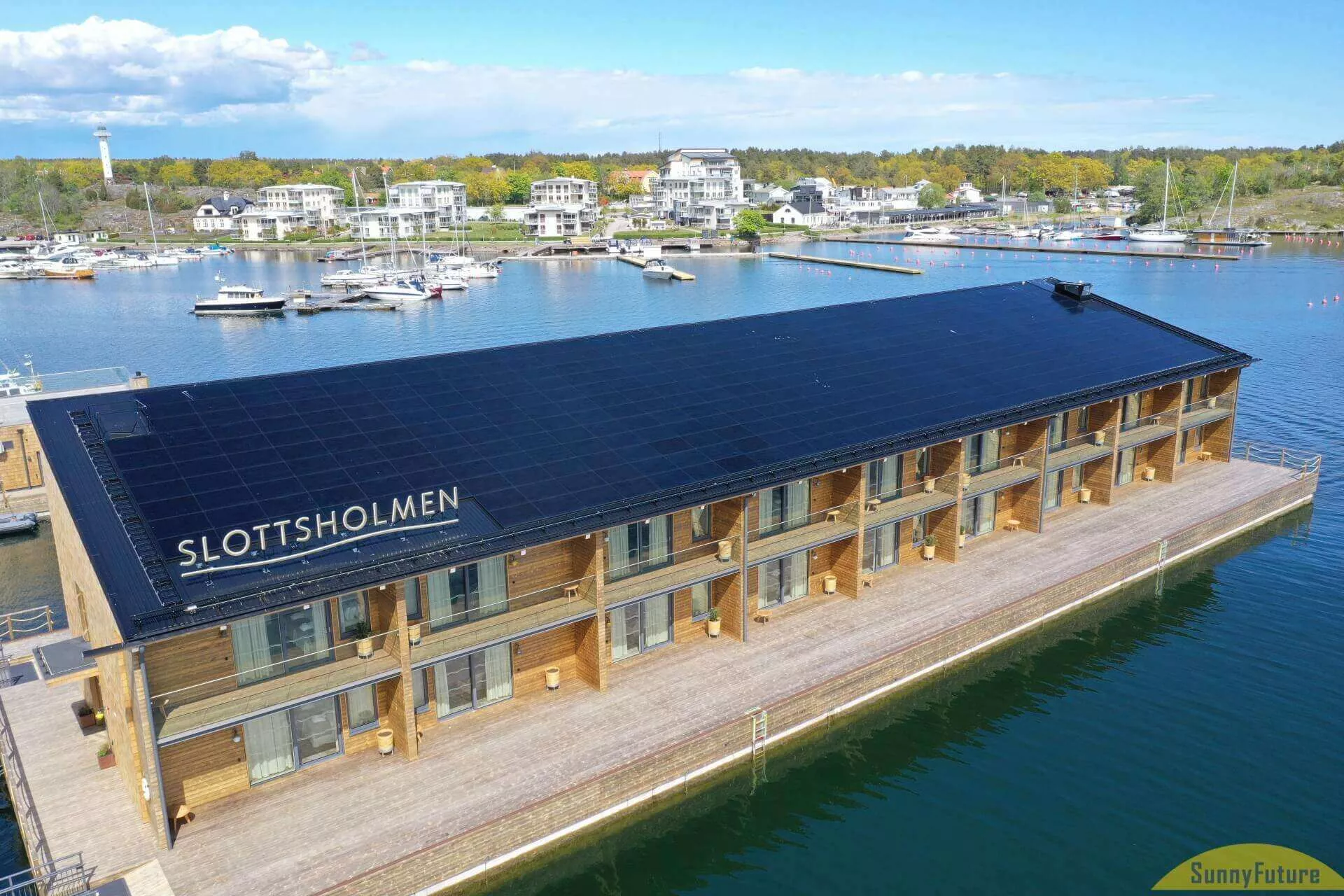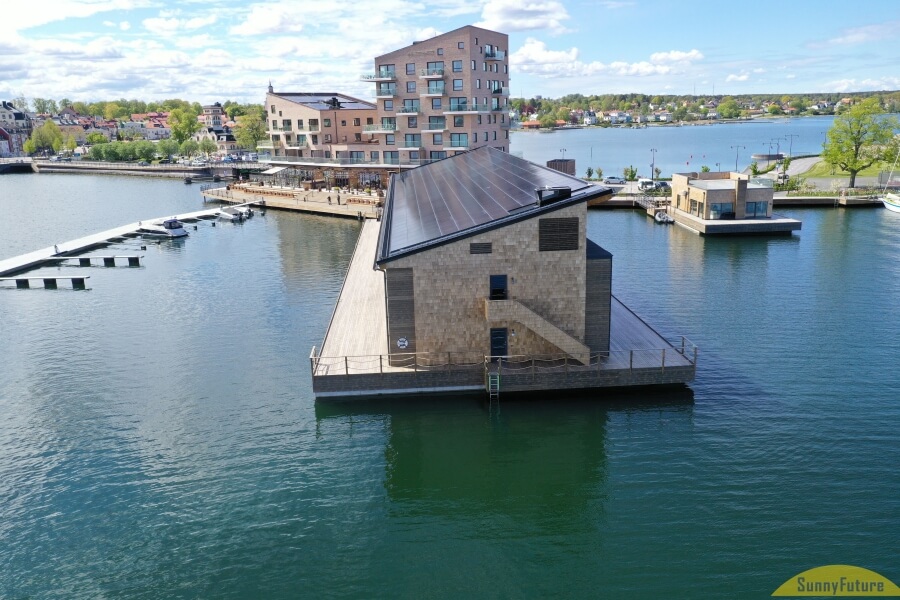
Slottsholmen on Water, a floating hotel and restaurant in the heart of Västervik, Sweden, was born from a clear vision: to create a meeting place built on sustainability for current and future generations to enjoy.
Hotel owner Björn Ulvaeus, of ABBA fame, and his family developed the idea together, and their commitment to sustainability is evident in the hotel’s design and operation.
From its floating pontoon and solar energy system to the local cuisine served in the restaurant, Slottsholmen is a model for sustainable hotels in Europe and globally.
Swedish design meets innovative solar technology
Nestled in the picturesque Västervik marina and overlooking the archipelago, Slottsholmen consists of three buildings. Central to the property is the 33-room floating hotel, while the other two buildings house tastefully furnished luxury suites and the restaurant.
A total of 412 SunPower Maxeon solar panels have been installed on the rooftop of the floating hotel, generating 151,000 kWh per year with a peak power of 147 kW.
In addition to generating electricity for the hotel’s daily use, the highly efficient solar panels also power a desalination plant, providing fresh and potable water from the surrounding seawater. The hotel produces nearly four times as much energy as it uses. It is even enough to power the restaurant and luxury suites. The surplus is fed into the grid.
As a result, the hotel is energy self-sufficient for most of the year. To increase self-sufficiency 320 kWh of LFP batteries are being installed. Combined, the solar panels and LFP batteries will save approximately 90 tons of CO2 per year.
Solar energy solves multiple challenges
With their long-term perspective in mind, the hotel owners wanted a solar energy system capable of powering a geothermal heating system to generate enough heating for all three buildings and hot water for the hotel spa.
SunPower Maxeon’s solar panels achieve all three goals: to provide enough energy for daily use, power the onsite desalination plant, and power the geothermal heating system.
They also have a minimal visual impact on the hotel’s surroundings: the panels turn entirely black and blend into the rooftop due to their specially treated mounting system.
Installed by local SunPower partner SunnyFuture, the panels were selected for performance, durability, sustainability, and transparency, core principles that matched the hotel owner’s vision.
Solar panel sustainability and transparency
SunPower Maxeon panels are the only solar panels to display their raw materials through the Declare label. Like a food product label, it helps customers understand how and where the panels are manufactured.
The label lists the panel’s raw materials, life expectancy, and recyclability. It shows that SunPower Maxeon’s solar panels are free from harmful substances and do not require handling hazardous waste during recycling.
As a result, the panels are safe for humans and the environment, confirming the ethos of Slottsholmen on Water to be a fully sustainable hotel for current and future generations.

A sustainable model for the hotel industry
While hotel carbon emissions vary by geography, the global hotel industry has lagged behind other real estate sectors in adopting energy-efficiency measures.
The United Nations World Tourism Organization estimates that hotels account for 2 percent of the 5 percent of global CO2 emissions emitted by the tourism sector.
According to research by the International Tourism Partnership, the hospitality industry will need to reduce emissions by 66 percent by 2030 and 90 percent by 2050 to stay within the 2-degree Celsius threshold agreed upon by the Paris Climate Accord.
Fortunately, sustainable hotels like Slottsholmen on Water are moving the needle in the right direction and are positive models for the hotel and solar industries.
In 2021, Svensk Solenergi, the Swedish Solar Energy Association, praised the hotel with an honourable mention in the Solar Energy Prize’s Facility of the Year category.
Project details
| Panels | SunPower X21 350 Black |
| Peak power | 147 kW |
| Average efficiency | 21.82% |
| Annual production | 151 MWh |